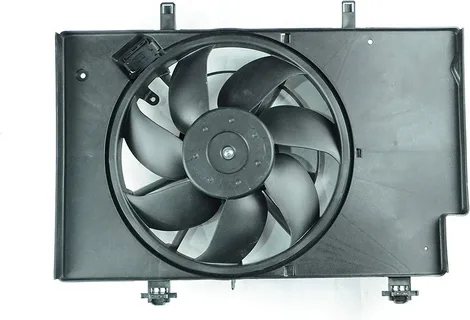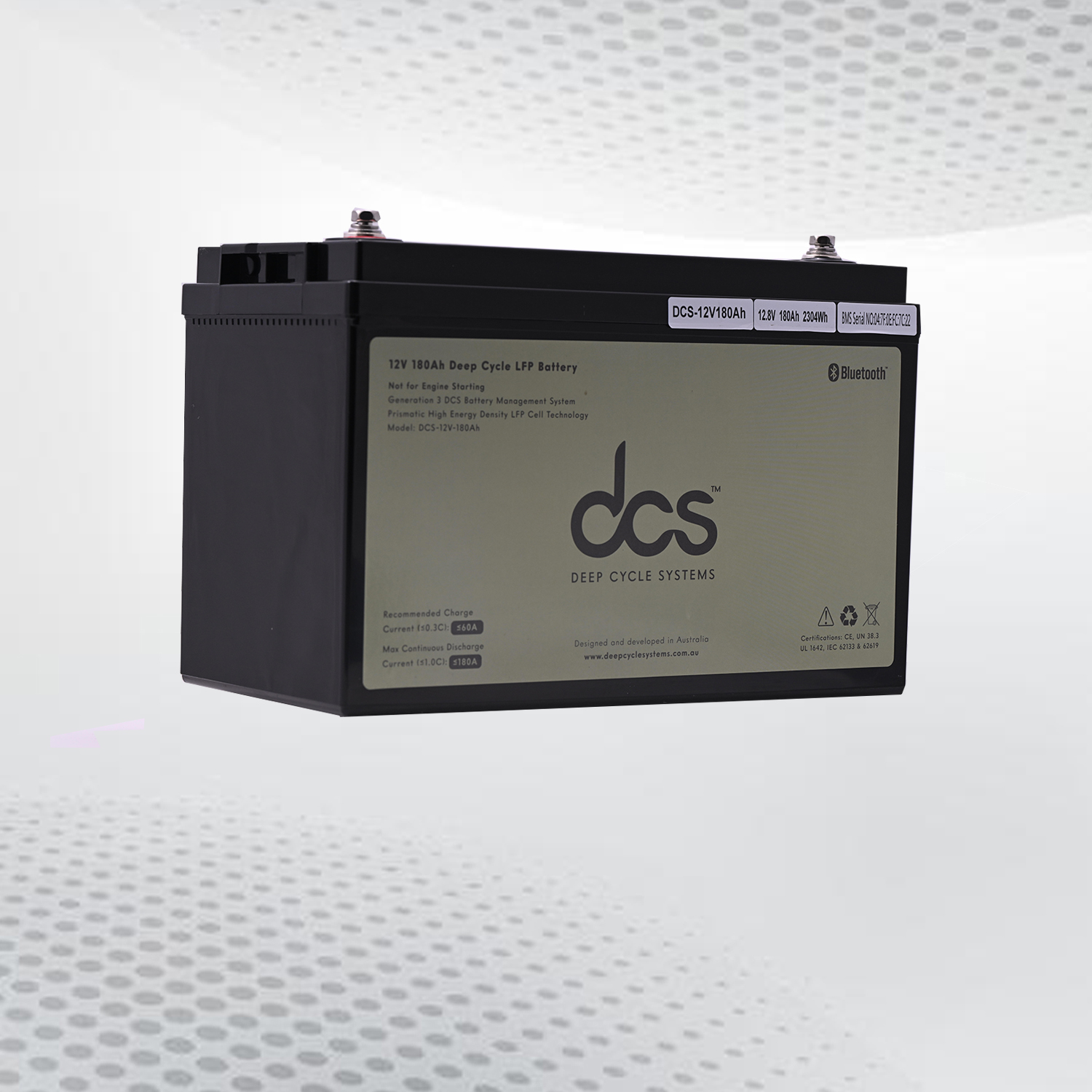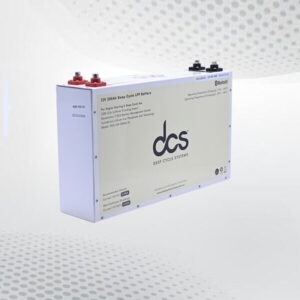Having a reliable power source is non-negotiable when setting sail on the open waters. Whether navigating through calm lakes or braving choppy seas, your boat’s performance hinges significantly on one crucial component: the marine battery. Among these powerhouses, the 24v marine battery stands out for its ability to deliver robust energy when needed.
But with so many options flooding the Market, how do you pick the right one? Understanding your needs and knowing what features matter can make all the difference in ensuring smooth sailing during your adventures. In this essential guide, we’ll dive deep into everything you need to know about choosing the best 24v-marine battery for your vessel. From types and specifications to maintenance tips and common misconceptions, get ready to empower your boating experience like never before!
Understanding the Importance of a Reliable Marine Battery
A reliable marine battery is the heartbeat of any boat. It ensures your vessel starts smoothly and powers everything from navigation systems to lights and electronics. Imagine being stranded in open water due to a dead battery. That scenario can quickly turn a fun day into a stressful situation. A dependable power source mitigates risks and enhances safety on board.
Marine activities often demand more energy than regular batteries provide. The correct battery meets these high demands while offering consistency throughout your journey. Moreover, modern boating involves numerous gadgets that require substantial power. From fish finders to stereos, each device strains the battery’s capacity. Your choice impacts both performance and overall enjoyment of the water.
Different Types of Marine Batteries and Their Uses
When it comes to marine batteries, understanding the different types is critical to making an informed choice.
- Starting with lead-acid batteries are popular for their cost-effectiveness and reliability. They come in two main varieties: starting batteries for engine ignition and deep-cycle batteries designed for prolonged discharge.
- Lithium-ion batteries have gained traction due to their lightweight design and efficient energy use. They excel in applications requiring frequent cycling but come at a higher price point.
- Absorbent Glass Mat (AGM) batteries offer a middle ground, providing durability while minimizing maintenance needs. Their sealed construction makes them spill-proof, ideal for choppy waters.
- Gel cell batteries also focus on safety, with their gelled electrolyte preventing spillage. These options are well-suited to smaller boats or personal watercraft.
Choosing the right type depends on your specific boating activities and power requirements.
Consideration When Choosing A 24v Lithium Marine Battery
When selecting a 24v-marine battery, power and capacity are paramount. Ensure the battery can support your vessel’s electrical demands without straining.
Think about compatibility with existing systems aboard your boat. Ensuring seamless integration will enhance functionality and performance during your adventures on the water.
Power and Capacity
Power and capacity are crucial factors when selecting a 24v lithium marine battery. These two elements directly influence how well your boat performs on the water. A higher amp-hour rating means more energy storage, allowing you to run electronics, lighting, and other devices longer without recharging. Understanding your power requirements will help you make an informed choice.
Consider what systems you’ll be operating. If you have multiple high-drain devices, such as fish finders or navigation systems, opt for a battery with substantial capacity. On the flip side, a smaller capacity may suffice if your usage is minimal—like essential navigation lights. Constantly assess both current needs and future upgrades to avoid surprises during outings.
Remember that balancing power demands with capacity ensures reliability while on the water.
Size and Weight
Size and weight are crucial factors when selecting a 24v-marine battery. A compact battery can save space on your boat, making it easier to install and optimize storage. However, the weight significantly affects how well your vessel performs. Heavier batteries may provide more power but affect your boat’s stability and handling.
It’s essential to balance these two aspects based on your specific needs. For instance, if you frequently travel long distances or engage in water sports, a lighter battery might be preferable for maneuverability. Always check the dimensions of the compartment where you’ll store the battery. Ensuring a snug fit will prevent unnecessary movement during rough waters. The right size will enhance accessibility while keeping everything organized onboard.
Durability and Maintenance
Durability is paramount when selecting a 24v-marine battery. Marine environments can be harsh, exposing your battery to moisture, salt water, and extreme temperatures. A robust design ensures that the battery withstands these conditions without faltering. Regular maintenance is crucial in extending the life of your marine battery. Periodically check terminals for corrosion and clean them as needed to maintain good conductivity.
Be attentive to water levels if you use lead-acid batteries; keeping them topped off can prevent damage over time. For lithium batteries, ensure proper charging cycles are followed. Proper battery storage during the off-season also contributes to longevity. Find a dry place away from direct sunlight and temperature extremes and disconnect it from any devices or chargers. This attention to detail will help ensure reliable performance when you’re ready to hit the water again.
Price and Warranty
When selecting a 24v-marine battery, price is often a primary concern. High-quality batteries can come with a higher upfront cost, which usually reflects better performance and longevity. It is essential to view the total value rather than just the sticker price. Warranties are also essential in your purchasing decision. A solid warranty indicates manufacturer confidence in the product’s durability and reliability. Look for warranties that cover several years or even lifetime options, providing peace of mind against unexpected failures.
Remember to factor potential replacement costs into your budget, too. An inexpensive battery may save you money initially but could lead to higher expenses if it needs frequent replacements or repairs due to poor quality. Balancing these elements—price and warranty—can help ensure that your investment pays off when you’re on the water.
Product Overview
Understanding each product’s unique features is essential when exploring the best 24v marine batteries. These batteries are designed specifically for marine environments, where reliability and resilience are crucial.
The leading options in the market often utilize advanced technologies like lithium-ion or AGM (Absorbed Glass Mat). Lithium-ion models stand out due to their lightweight design and high energy density. They offer longer lifespan compared to traditional lead-acid batteries.
AGM batteries provide excellent performance in harsh conditions. Their sealed construction prevents leaks and spills, making them a favourite among boaters concerned with safety.
Each battery typically varies in capacity, measured in amp-hours (Ah), which indicates how much energy it can store. Additionally, many come equipped with built-in monitoring systems that help track charge levels and overall health.
Choosing the right model depends on your specific needs—whether you need it to power electronics or start engines—to ensure your adventures remain uninterrupted.
Tips For Maintaining And Extending The Life Of Marine Battery
Regular maintenance is critical to extending the life of your 24v-marine battery. Start by checking the terminals for corrosion. A simple cleaning can prevent poor connections and ensure optimal performance. If your lead-acid battery is flooded, keep an eye on fluid levels. Topping off with distilled water when necessary helps maintain functionality. Temperature extremes can be harsh on batteries, so store them in a moderate environment whenever possible. Extreme heat or cold can diminish their lifespan and efficiency. When not in use, consider using a smart charger to keep the battery topped up without overcharging it. This will help maintain capacity while reducing wear.
Installation Tips
Installing a 24v-marine battery requires precision and care. To prevent corrosion or damage, start by ensuring that the area is clean and dry.
- Proper tools during installation are essential for safety and efficiency. A wrench, screwdriver, and wire cutter are essential for most setups.
- When connecting cables, permanently attach the positive terminal first, followed by the negative. This prevents accidental short circuits.
- Securely fasten your battery using mounting brackets or straps to avoid movement while on rough waters.
- Double-check all connections for tightness and insulation before powering up your system. Loose connections can lead to energy loss or even electrical fires.
Consider ventilation; batteries can emit gases that must dissipate freely during operation. Proper airflow helps maintain battery health over time.
Features Of 24 Volt Lithium Marine Battery
Understanding a 24v-marine battery’s features is crucial for optimal performance.
- Capacity is key. Look for batteries with high amp-hour ratings. 24 volt lithium marine batteryensures your boat can run multiple devices without quickly losing power.
- Weight matters, too. A lighter battery improves fuel efficiency and ease of installation while maintaining stability on board.
- Durability cannot be overlooked. Marine environments are harsh; choose batteries to withstand corrosion, vibrations, and extreme temperatures.
- Fast charging capabilities enhance convenience when time is tight. Efficient charging technology helps you get back on the water sooner rather than later.
- Safety features such as built-in fuses or thermal protection provide peace of mind during use and prevent potential hazards.
Compatibility with solar panels or other renewable energy sources may enhance versatility in powering your marine applications efficiently.
Applications Of 24 Volt Lithium Ion Marine Battery
24v marine batteries are versatile and cater to a variety of applications.
24 volt lithium ion marine battery deliver the reliability that boaters need for powering electric propulsion systems. They provide sufficient energy for short and long trips, ensuring smooth operation.
When it comes to onboard electronics, 24v batteries excel in supplying power for navigation systems, fish finders, and communication devices. This ensures that mariners stay connected and informed while out at sea.
In addition to recreational uses, many commercial vessels rely on 24v marine batteries for heavy-duty applications. Whether powering winches or lighting up deck equipment, these batteries hold up under demanding conditions.
Batteries are essential in emergency backup systems. When everything else fails, a reliable battery can ensure safety during unexpected situations on the water.
Specifications Of 24v Deep Cycle Marine Battery
Specifications play a crucial role when selecting a 24v deep cycle marine battery. Start with the voltage rating; ensure it matches your vessel’s requirements for optimal performance. Next, examine the amp-hour (Ah) capacity. This indicates how much energy the battery can store and deliver over time. A higher Ah means longer power supply during trips.
Weight is another important specification. Lighter batteries are easier to handle but may compromise on capacity or durability. Consider also the cold cranking amps (CCA). This measurement shows how well the battery can start an engine in freezing conditions, vital for marine environments.
Maintenance and Care Tips for Your Battery
Proper maintenance of your 24v-marine battery is crucial for longevity and performance. Regularly check the terminals for corrosion. A simple cleaning with a mixture of baking soda and water can keep them free from buildup.
- Ensure that your battery remains charged, especially during off-seasons. Frequent discharging can reduce its lifespan significantly.
- Temperature control is essential too. Extreme heat or cold can affect performance; store batteries in a climate-controlled environment when not in use.
- Always inspect connections for tightness and wear. Loose or frayed cables may lead to ineffective power transfer.
- Consider investing in a smart charger designed specifically for marine batteries. This charger optimizes charging cycles and protects against overcharging.
Familiarize yourself with the manufacturer’s guidelines regarding maintenance schedules and care procedures to maximize efficiency.
Common Misconceptions about Marine Batteries
Many boaters harbor misconceptions about marine batteries. One common belief is that all marine batteries are the same. In reality, they vary significantly based on design and purpose.
Another myth is that a higher price guarantees better performance. While quality often correlates with cost, analyzing specifications rather than solely relying on brand reputation or price tags is essential.
Some people think maintenance-free means no care at all. Even sealed batteries require regular checks for corrosion and connections to ensure optimum function.
There’s a notion that larger capacity equates to longer life. This isn’t always true; the battery’s use affects its lifespan more than sheer size. Knowing these facts can empower you to make informed choices when selecting your next 24v-marine battery.
Final Thoughts and Recommendations
Choosing the correct 24v battery is crucial for a seamless boating experience. It’s not just about power; reliability plays a significant role in ensuring you stay on course without interruptions. Consider your specific needs carefully. Whether fishing, cruising, or powering electronics, different activities require various levels of capacity and performance. Investing in a quality battery will pay off in the long run. Look for reputable brands that offer solid warranties and responsive customer service. This ensures peace of mind while you’re out on the water. Always prioritize maintenance to extend your battery’s life. Simple practices can make a big difference over time.
Conclusion
Every boater has unique needs, so evaluating options based on specific requirements is crucial. A thoughtful approach can prevent future issues and increase satisfaction on the water. Investing time in research pays off. Understanding the features that matter most will save time and money. Whether fishing, cruising, or exploring, a dependable 24v marine battery is vital in enjoying every moment on board. Make informed choices to keep your adventures smooth sailing!
FAQS
Choosing the correct 24v-marine battery is crucial for ensuring your boat operates smoothly and efficiently. With various options available, understanding what suits your needs best can make all the difference.
1. What is a 24v marine battery used for?
A 24v marine battery powers electric motors, lights, fish finders, and other essential onboard equipment.
2. How long does a 24v-marine battery last?
The lifespan of a 24v-marine battery varies based on usage and maintenance but generally ranges from three to seven years.
3. Can I use a car battery as a marine battery?
While it’s possible to use a car battery in some situations, it’s not recommended due to differences in design and discharge rates explicitly tailored for maritime applications.
Your choice will affect performance and reliability on the water. Make informed decisions by considering power requirements, size constraints, durability against harsh conditions, pricing strategies, and warranty offerings—all while maintaining proper care practices post-purchase.
| Related Business Listings |
| Directory Submissions |
| Regional Directory |




